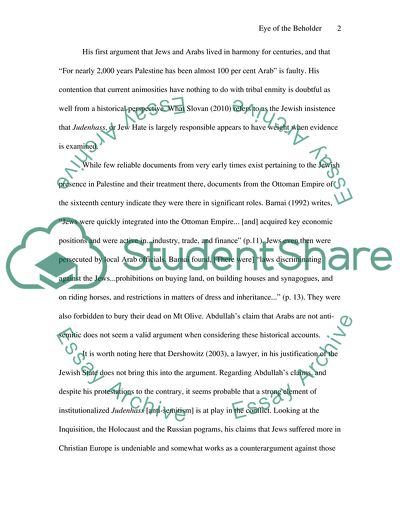Cite this document
(“Issue Of The Conflict Between Israel And The Palestinians Essay”, n.d.)
Issue Of The Conflict Between Israel And The Palestinians Essay. Retrieved from https://studentshare.org/politics/1566823-as-the-arabs-see-the-jews-his-majesty-king-abdullah
Issue Of The Conflict Between Israel And The Palestinians Essay. Retrieved from https://studentshare.org/politics/1566823-as-the-arabs-see-the-jews-his-majesty-king-abdullah
(Issue Of The Conflict Between Israel And The Palestinians Essay)
Issue Of The Conflict Between Israel And The Palestinians Essay. https://studentshare.org/politics/1566823-as-the-arabs-see-the-jews-his-majesty-king-abdullah.
Issue Of The Conflict Between Israel And The Palestinians Essay. https://studentshare.org/politics/1566823-as-the-arabs-see-the-jews-his-majesty-king-abdullah.
“Issue Of The Conflict Between Israel And The Palestinians Essay”, n.d. https://studentshare.org/politics/1566823-as-the-arabs-see-the-jews-his-majesty-king-abdullah.


